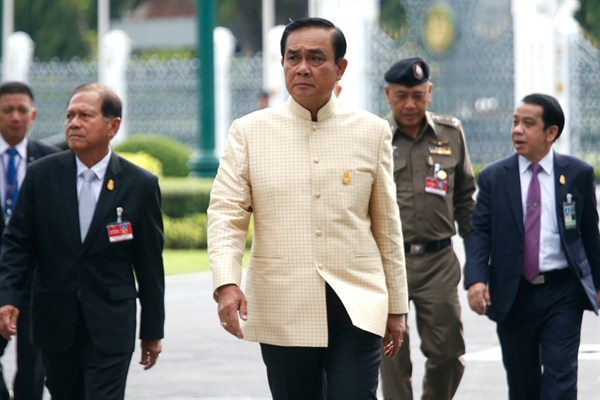On a visit to Japan earlier this month, Thailand’s prime minister and the leader of the junta in power since 2014, Prayuth Chan-ocha, confirmed that elections would indeed be held early next year, by May 2019 at the latest. According to a readout of a meeting between Prayuth and Japanese Prime Minister Shinzo Abe, Prayuth said that elections could be held as early as February. They would be the first elections since February 2014, which were subsequently invalidated by Thailand’s Constitutional Court, precipitating the military coup that deposed Prime Minister Yingluck Shinawatra and her government.
Although the junta has repeatedly vowed to hold elections and then delayed them, there is substantial reason to believe it will actually stick to its 2019 plan. Thailand’s king has given his approval for the last two bills needed for an election. The junta has now told a wide range of foreign leaders and media outlets that it plans to hold the vote next year. And, most importantly, having laid the groundwork to diminish the power of elected politicians even after the vote, the military has stepped up plans to further dominate the kingdom after ballots are cast. It will do so by running a pro-military party in the elections, wooing other political parties in the race for the lower house of parliament—the Senate is not elected—and even possibly by having former junta members take top jobs in the next government.
For over four years now, the armed forces have kept Thailand under its most repressive regime in decades, while utilizing a range of tactics to entrench the army’s long-term power. The military oversaw the passing of a new constitution in 2016 that will make it harder for any one party to capture a majority in the lower house of parliament, as various iterations of the party that backs former Prime Minister Thaksin Shinawatra—Yingluck’s older brother—did for more than a decade. The army also strengthened the power of unelected institutions via the new constitution and granted new powers to itself to oversee the country for two decades via a sweeping “national blueprint.”

